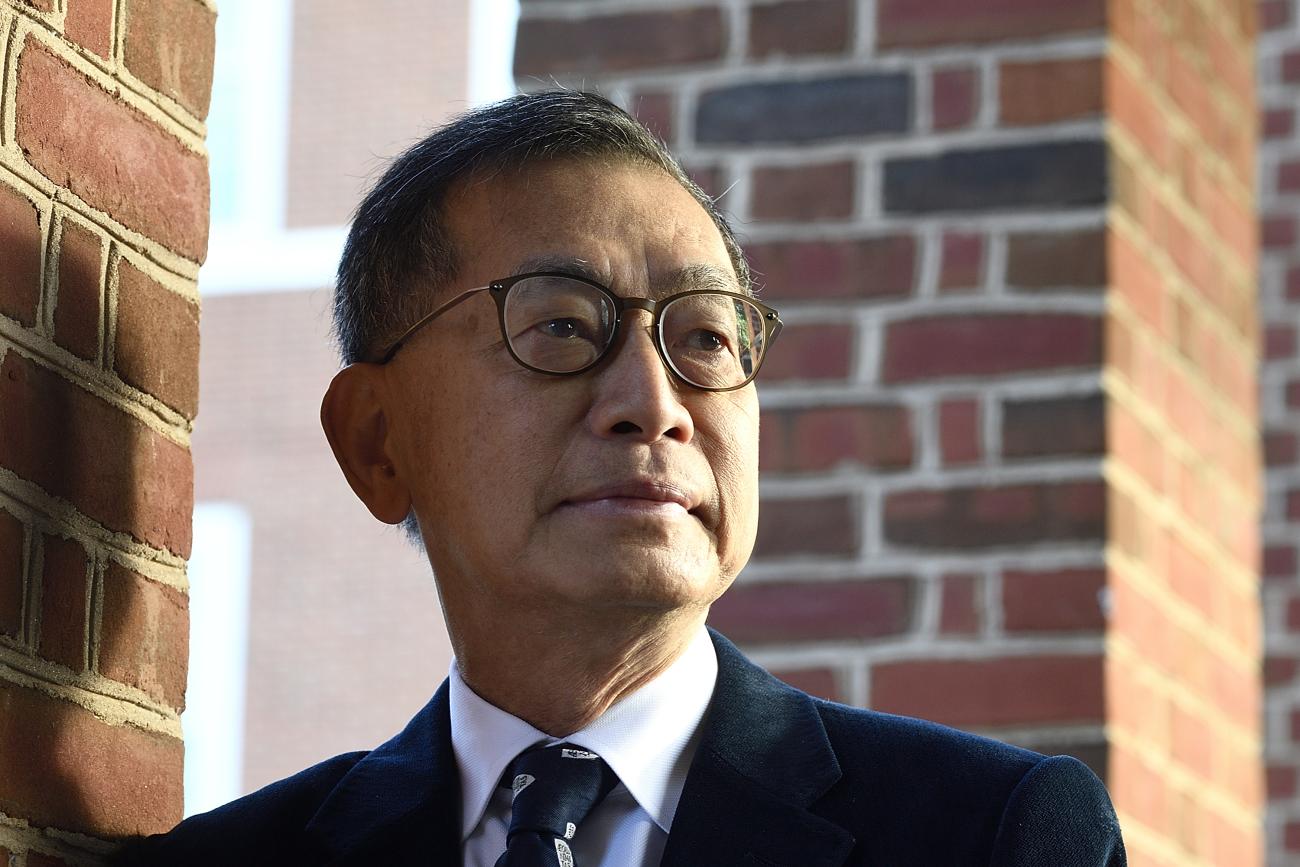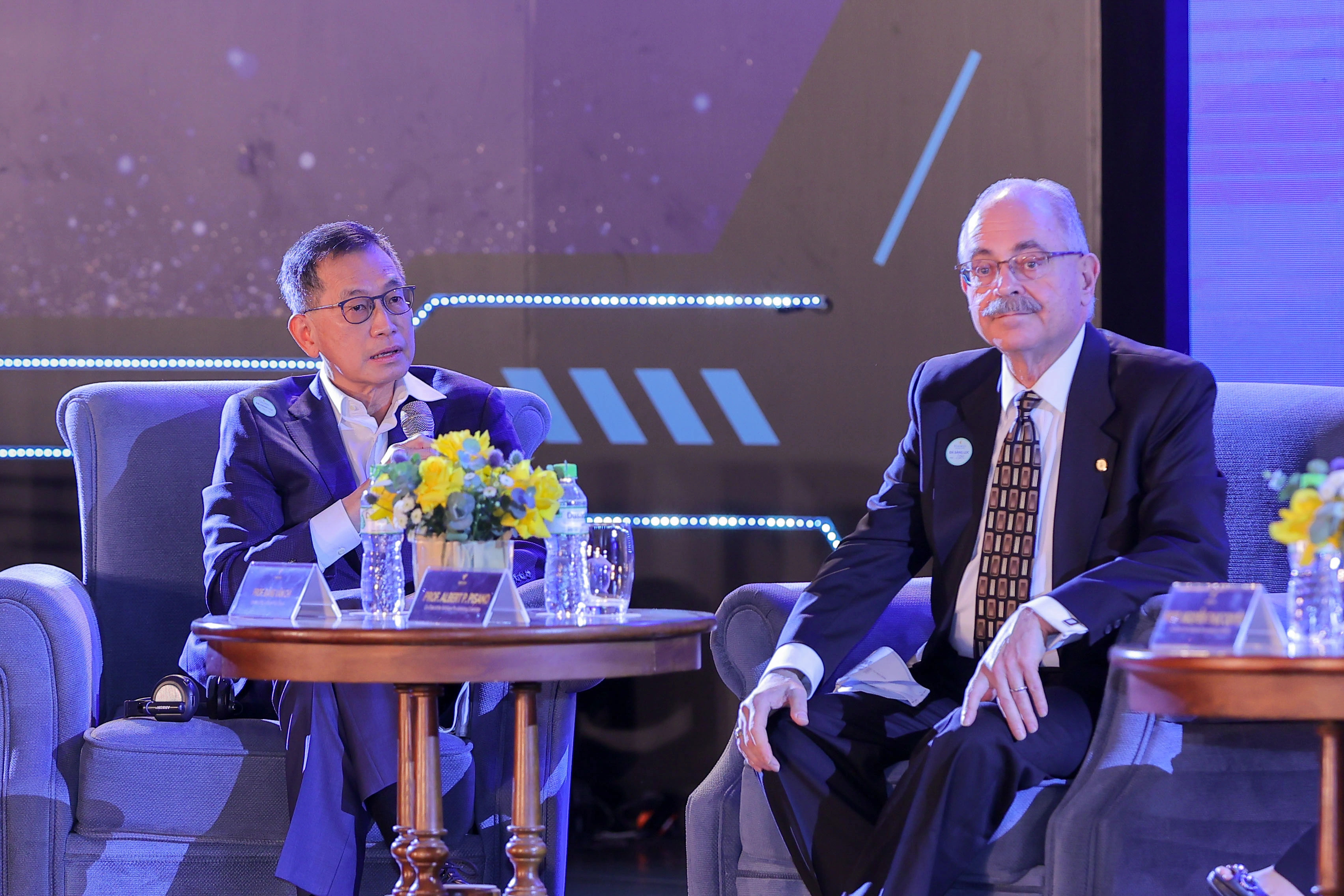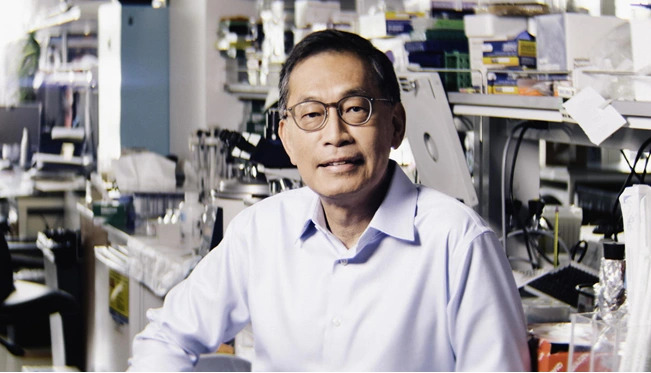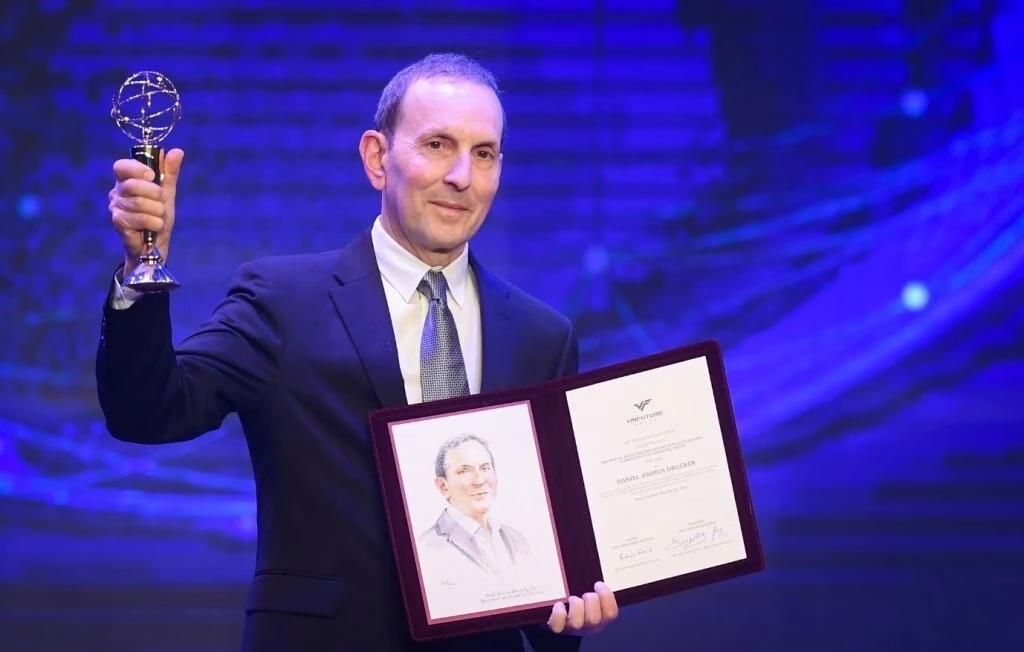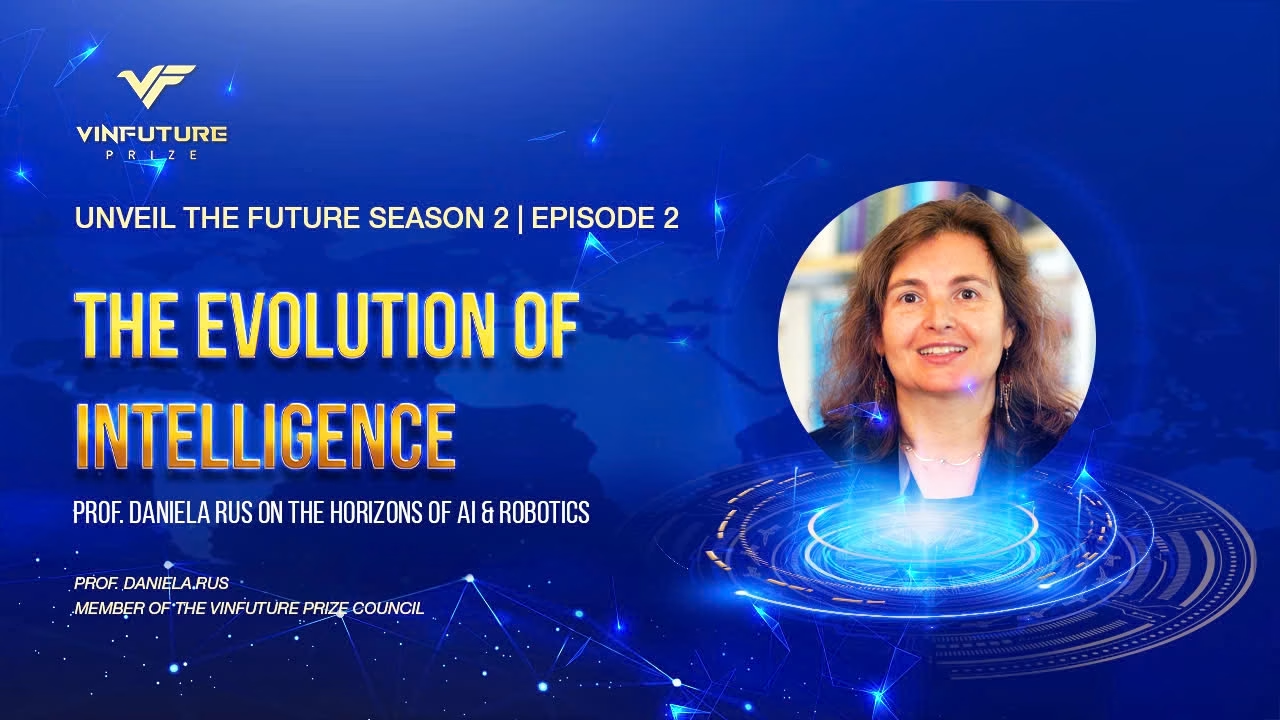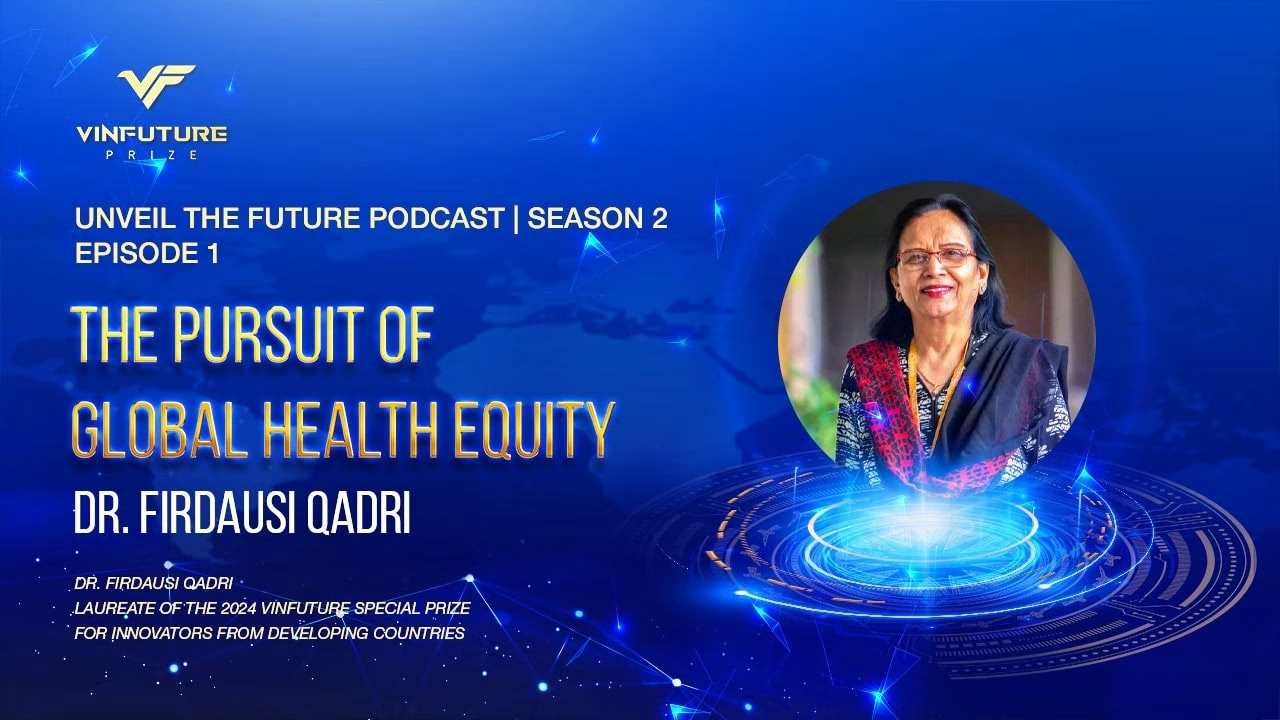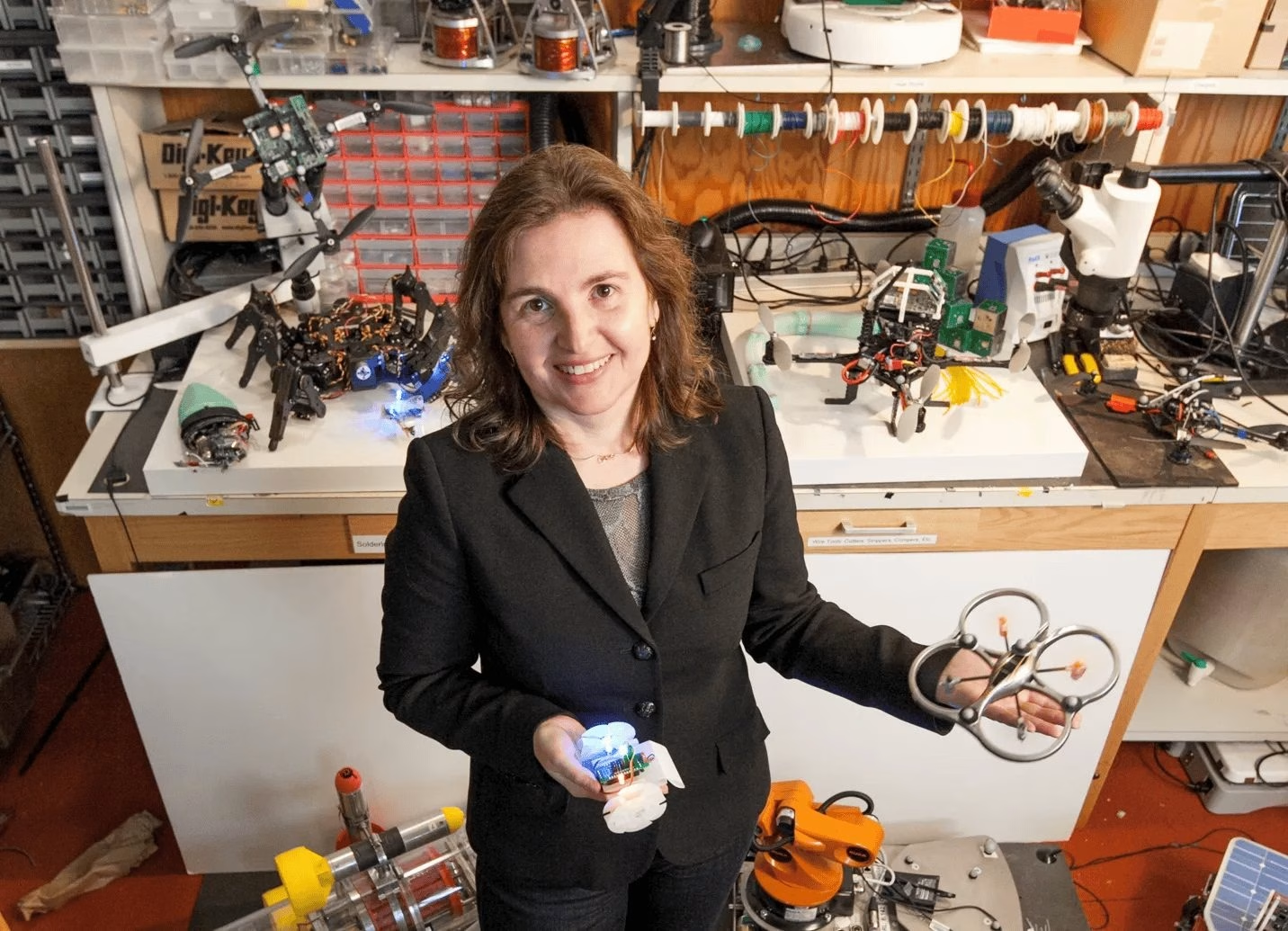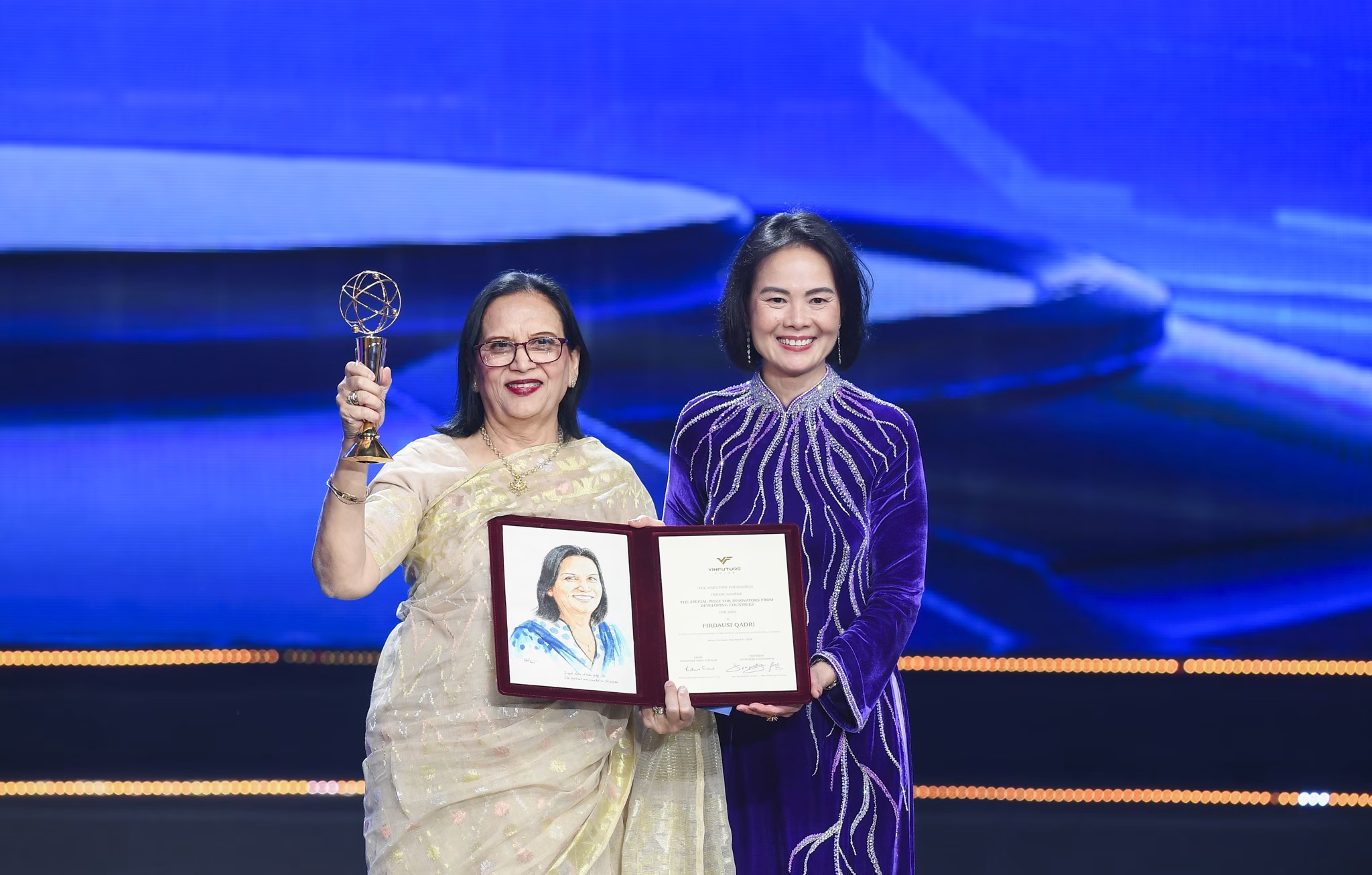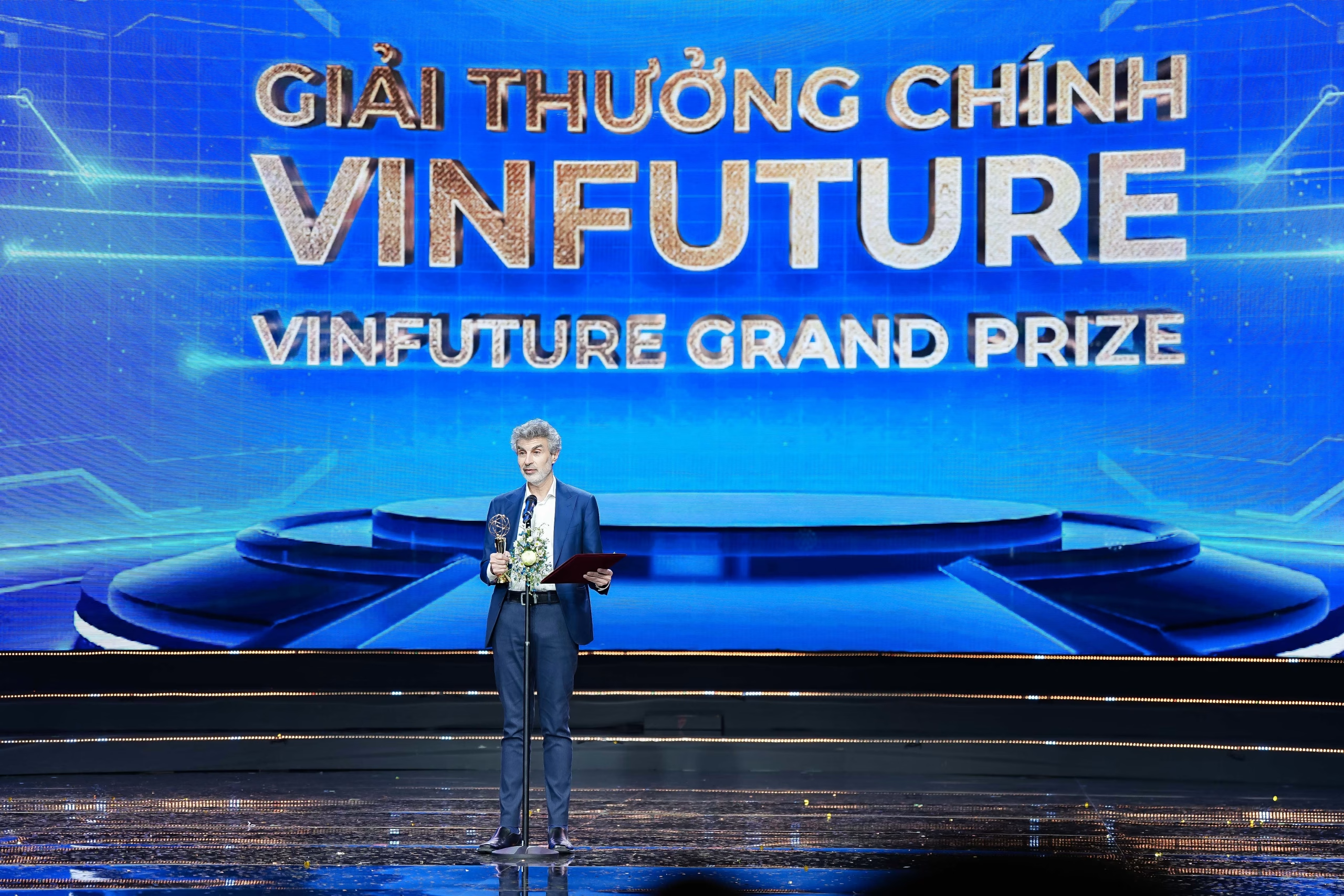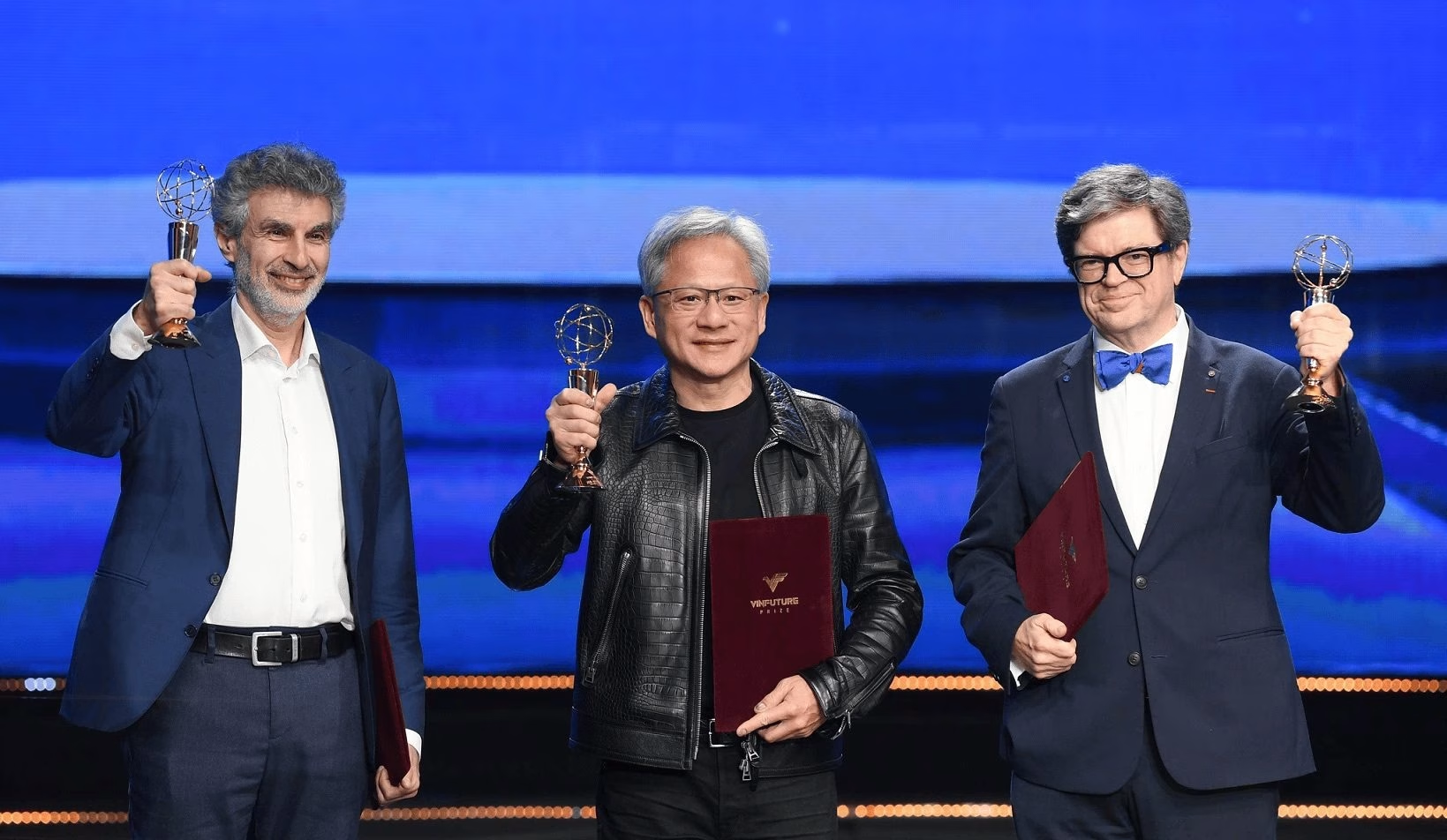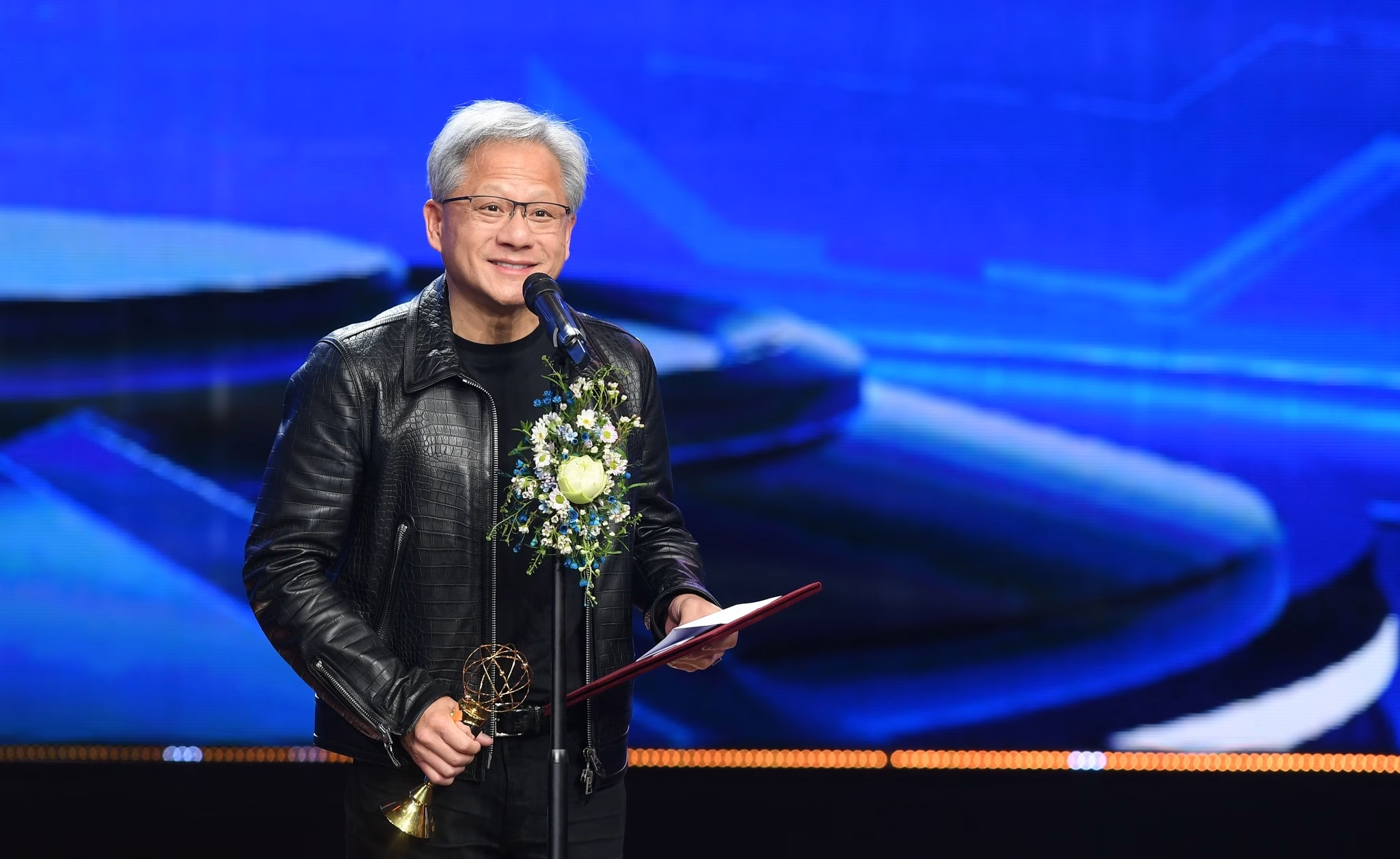After a long time devoted to cancer research, Prof. Chi Van Dang realized that there are two important problems: The difference between various types of cancers and how one patient responds to the same therapy differently than others. He thought that those questions require an intense amount of data and can be solved by using new emerging technology. Besides, Prof. Chi Van Dang emphasized that there has been a revolution in cancer treatment over the past decades, especially immunotherapy.
In the interview, he also clarified why team science matters, as well as shared what he thought to be the formula for success for any researcher. It includes passion, persistence, and just doggedly not giving up.
– Prof. Chi Van Dang: During medical school, I was exposed to many different disciplines, if you will. Usually, the things that kind of draw my attention are good teachers or mentors. I was very impressed with the area of hematology particularly, because of the elegance of the type of diseases and how we understand, how we treat the diseases. That evolved into my interest in blood cancers or leukemia. I became very interested in doing research in this area to really understand what are the basic mechanisms that drive these blood cancers, and can we somehow learn from that to come up with new therapies to really change the course of patients? I think that’s where my initial interest in cancer or oncology came from.
As my career evolved, personal experience becomes much more of a driver of my interest. I have a very good friend who died very young of cancer, a trainee who also died of cancer, and a couple of family members who also died of cancer. I felt as a physician-scientist, given how much we think we understand, we think we know how to deal with things that we really don’t. There are so many unanswered questions. That became not only an emotionally driven desire to make a difference but also an intellectual desire. Can we really look into the details of how things happen to really begin to dissect things out and provide new solutions for old problems?
– Being a physician-scientist, how do you navigate the balance between conducting experimental studies and just focusing on patient care? Can you provide an example of how a breakthrough in research has directly impacted your research strategies?
– Prof. Chi Van Dang: When I used to be very active clinically, I would do inpatient services, which is in the hospital. I’d also see patients in the outpatient. When I was very active, I also ran a very active lab. I told you that my interest back then was in blood cancers. I was very interested in blood cancers. Some of them grow very rapidly. In fact, patients would come in if they have acute leukemia. If you don’t treat them right away as an emergency, they could die within days or weeks. I was very interested in my lab on how these cells basically divide so quickly, and how they multiply so fast.
We were very interested in what are the nutrients or the fuel that fuels these cells to grow, and what kind of food they eat. That’s kind of my research side. On my clinical side, I have patients who then would develop leukemia in the course of their blood diseases. I’ve seen patients whom I would take care of them for years and all of a sudden they become acute. They have acute leukemia and very rapidly need to be given therapy.
Just to give you one example, I had a patient who was a US judge, he came in with a type of leukemia that’s more chronic, which is a little bit slower. It’s called chronic myelocytic leukemia or CML. At that time, these are many decades ago, we only had several therapies, either chemotherapy or a type of biological therapy using a product called interferon, which had a lot of side effects. When you inject this, people get very sick, they get a lot of fevers, but that was the only thing available at the time to treat this.
In fact, I treated my patient with the interferon over several weeks. Luckily, he’s one of the few people that actually went into remission, so we got rid of the cancer. But the thing that’s really interesting about that particular case is that it illustrates how research has evolved over time that provides new products to patients.
In this particular disease called chronic myelocytic leukemia, there’s a very specific defect, a molecular defect that leads to a very specific drug that’s been designed to go after that defect. The drug is called Gleevec. Now it’s been approved for many decades. Now, many patients with this particular leukemia are under control. Their disease goes under control for many, many years by just taking a pill. Before all this research was done, these patients had to undergo pretty intense toxic therapy.
I think that’s what you see in oncology, you go from toxic therapy to the evolution of therapies that are less toxic and more efficacious. More people actually respond. The latest breakthrough now is, of course, immunotherapy, which not only uses chemotherapy, radiation therapy, or surgery. Now we have immunotherapy where you exploit your immune system, and your immune system has evolved to fight off infections. But at the same time, the immune system can evolve to fight off cancer. This is a whole new area that’s been evolving over the last decade and a half.
I have to say it has revolutionized how we treat patients. I don’t practice medicine anymore. I focus mostly on the lab right now, but certainly, we pay a lot of attention to what I would call clinical unmet needs. What are the areas of oncology or cancer that need attention and what kind of questions need to be answered? That’s what the focus of my lab is at the moment. Having been medically trained, I’m very astute, very aware of these questions. That’s what my lab mostly is driving towards. For example, why don’t certain patients respond to the same therapy, why is it that only 40% of patients get cured and not the other 60%? These are the kind of research questions that really arise in a laboratory because we hope that someday in the future, we’ll be able to cure 99% of people. That’s really aspirational, but that’s what we’re all driving for.
– In your opinion, what are some of the biggest obstacles, or you can say unanswered questions, in cancer research these days? How do you and your team plan to address these challenges?
– Prof. Chi Van Dang: If you step back and look at the area of cancer research, what are the big questions? Maybe I’ll just put it that way for discussion. So I think the big question is I keep on going back to the clinic. Cancer is not one disease. It’s over 200 different types of diseases. That means each disease needs a different type of treatment. The first question is, what is the specificity, what is the characteristic of the different types of cancers, what do the different types of cancers require for treatment, and how do we cure liver cancer versus brain cancer, versus lung cancer? They require different therapies. We really need to treat these as different diseases and understand these to the detail that we can actually tailor therapy to those types of diseases. That’s the first question, diseases specify therapy.
The second question is: Why is it that when you take 200 patients with apparently the same disease, a type of lung cancer, only 20% respond to therapy? That specific therapy for that disease, how I got only 20% and why the other 80% don’t respond. So the second question is, what is human variability? Why am I different from you? Why you’d respond to certain drugs differently than I do? I think this is the level of research that’s going to take years to really dissect, and understand individual variability. What is it about this patient versus this patient? One responds and one doesn’t respond.
I think that’s where biology will evolve to really understand all the factors that distinguish one person from the next and how to respond to therapy. This is where I think the evolution or revolution of all of these very high data generating technologies, we call them omics. We can study 20.000-30.000 genes at the same time. We can study metabolites hundreds of the same times, everything we can get a large amount of data. You can imagine if I gather all this data from you, we’re talking about many parabytes.
So what are the challenges in cancer research? Basically the way I kind of look at this is that cancer is not one disease, but it’s really over 200 diseases. If you think about brain cancer versus liver cancer, versus lung cancer, each type of cancer requires a very specific, different type of care therapy. The therapy for brain cancer is very different from lung cancer or liver cancer.
I think the first scientific question is what is the difference between the different types of cancers? And do we understand well enough that we can come up with drugs that can treat that specific type of cancer? That’s the first question. What are the details of the different types of cancer we understand enough at the molecular level, at the cellular level to be able to treat those effectively? Even if we have drugs that treat lung cancer, for example, which we have now, including immunotherapy, what we do know is that when you take hundreds of patients and you treat them with the same type of group of drugs, only a fraction of these patients will respond to therapy. Only very few of these patients will be cured. The real question is, why is it that with the same therapy, for the same disease, one person will respond and another person doesn’t?
I think the second scientific question is what we understand about individual variability. Why is it that our medical conditions differ from each other?? That is, why do you respond to certain drugs differently than I do? I think this becomes a very complex problem.
It’s a complex problem that requires an intense amount of data. I can study the disease itself using highly emerging technology that gives me literally hundreds and thousands, if not million data points to really pinpoint that particular type of disease. I can collect data from individuals. For example, different blood tests, your blood pressure, how much you sleep, also require a ton of data. What does cancer research look like in the future? I think putting all this together, including all the clinical information, we will need to rely on machine learning and artificial intelligence.
I think this is where the future of research in general, and cancer specifically, really begin to go. What I know about you, with all the data that’s available, and to machine learning to say this is the best therapy for you. You shouldn’t be getting the same dose of the same drug as the next person, because you’re different. Now we can really personalize medicine. I see this going to happen in the next 5-10 years where you begin to see more and more specific therapy, even for different types of cancer and specific patients.
I think that’s what we’re looking forward to. It creates a level of excitement and research that I haven’t found before. We have all the different types of therapies that are available. Now all of a sudden we can grasp a very large amount of data using machine learning and computer science to start to really pinpoint how we improve the result. Because by using computers so rapidly, we actually can test all these ideas out very, very fast. We don’t have to wait. That’s really kind of addressing that kind of challenge and the hope. Not only a challenge but a lot of hope that we’ll see big differences in the future.
